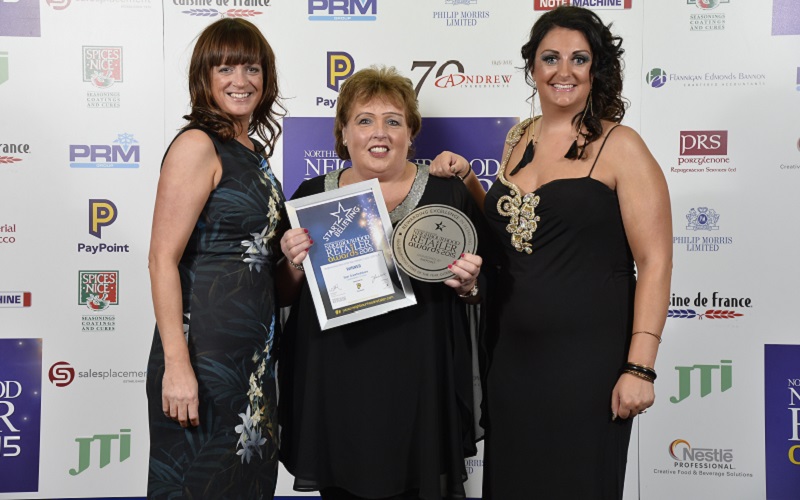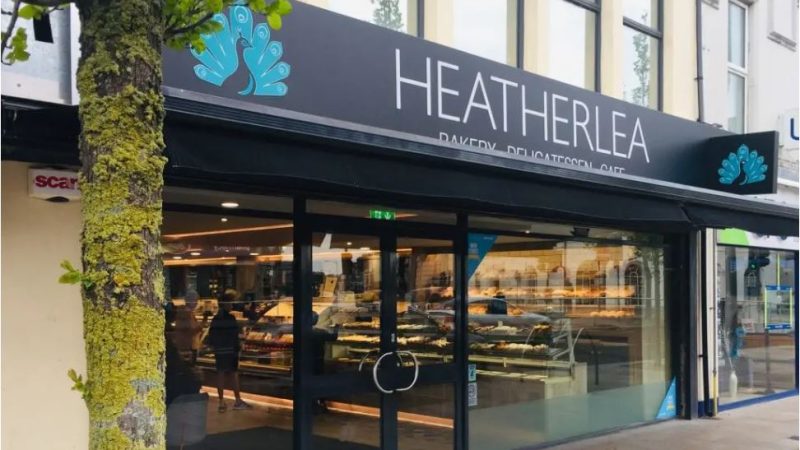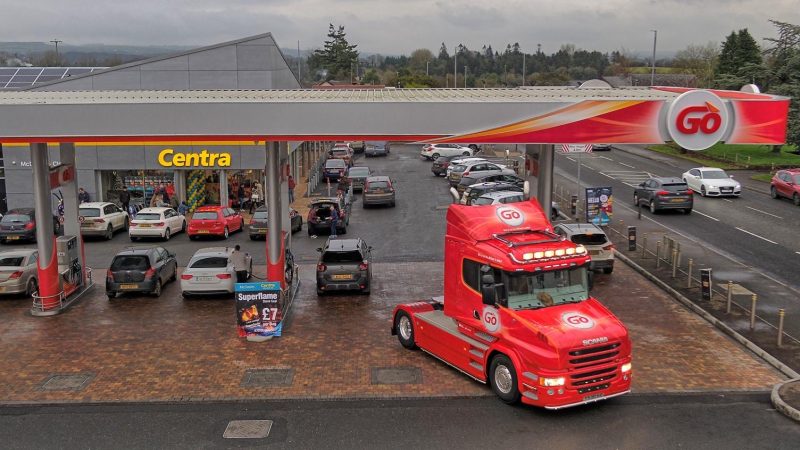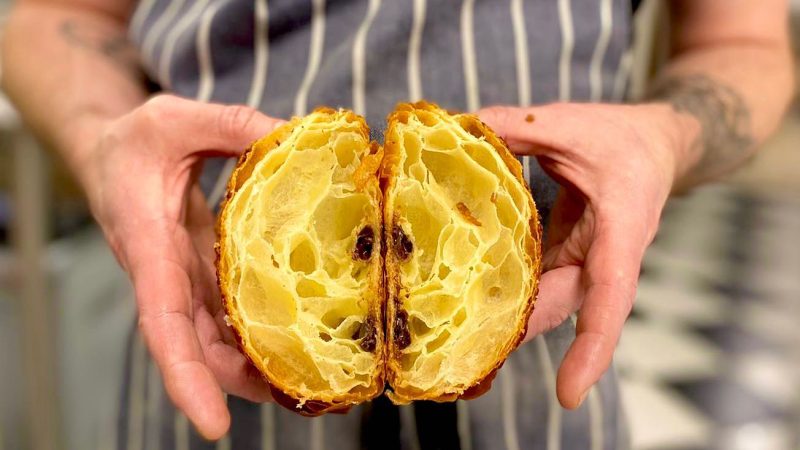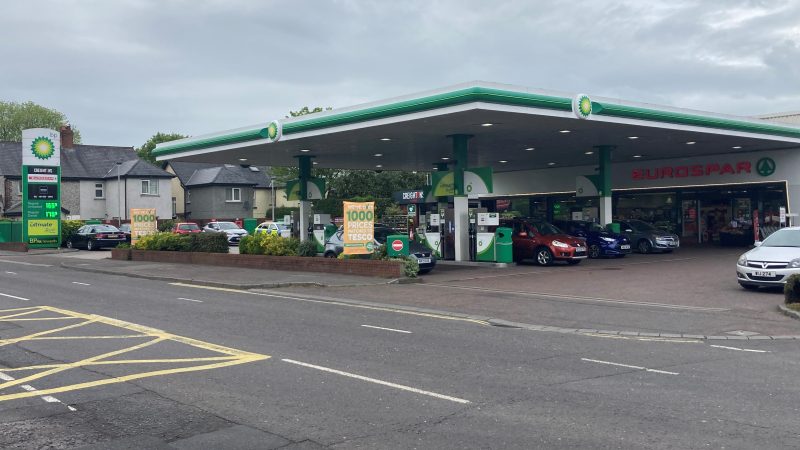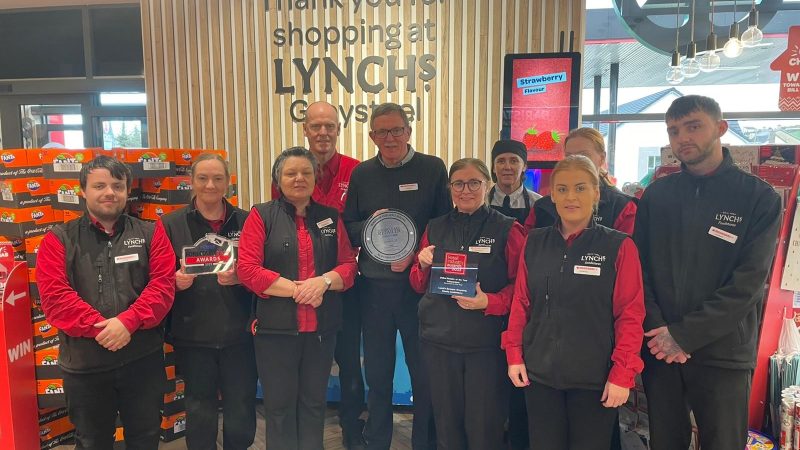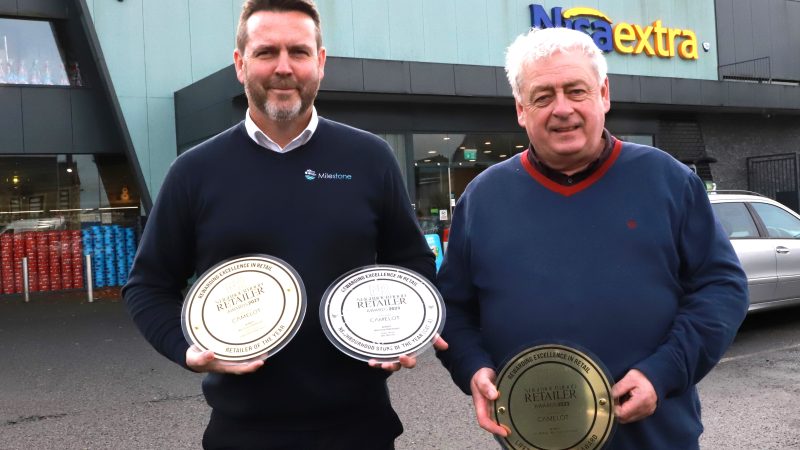A career in retail
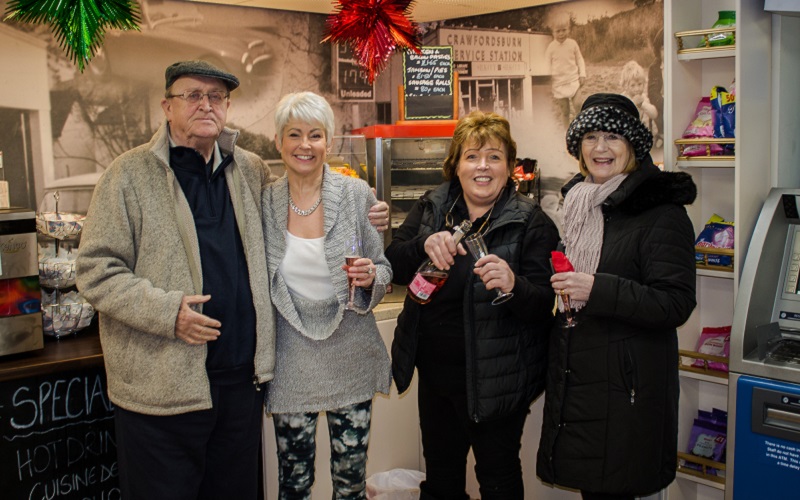
Owner of the Spar Topaz forecourt in Crawfordsburn, Linda McCormick looks back at a career as the cornerstone of the community.
The retail sector has changed emphatically since the middle of the last century. Back when Linda McCormick’s father – a mechanic from Omagh – built a petrol station workshop in Crawfordsburn the challenges and opportunities facing small independent retailers and forecourt owners were completely different to those in today’s marketplace. While some sectors within the market have become more competitive, with approaches to business mechanisms changing over the years, technology and developments in supply chain management have offered new opportunities across the market.
Since McCormick’s father laid those founding bricks in 1954 and opened the business on Christmas Eve 1955, McCormick’s Spar Topaz forecourt has evolved too. An award-winning establishment, it offers a number of local products, a full grocery range, and of course a variety of petrol products. Since its birth, the forecourt has evolved with the needs of its market, overcome a variety of hurdles – including robbery and tight market conditions – to stand out in the area.
“We’ve seen the rough and the tough and come through it all,” says McCormick, thinking back to the early days when her father managed the operation.
“There was no electricity when we started out, which made things difficult,” she says. “And then there was the petrol strike in the 1960s, which seemed to change things for everyone. It was such a different world. We used to deliver petrol to some our customers, which of course a forecourt operator would struggle to do now.”
Since then, the market has changed immeasurably. Margins for retailers – including the larger players – have seesawed over the years, as rules and regulations have increased exponentially. Technology has played a guiding hand for many retailers in helping save costs, but developments have also meant business owners and their employees have had to learn and adjust to new processes. For McCormick, however, there’s a simple rule: treat each customer in a way in which they’ll want to come back, and know who is coming into your shop.
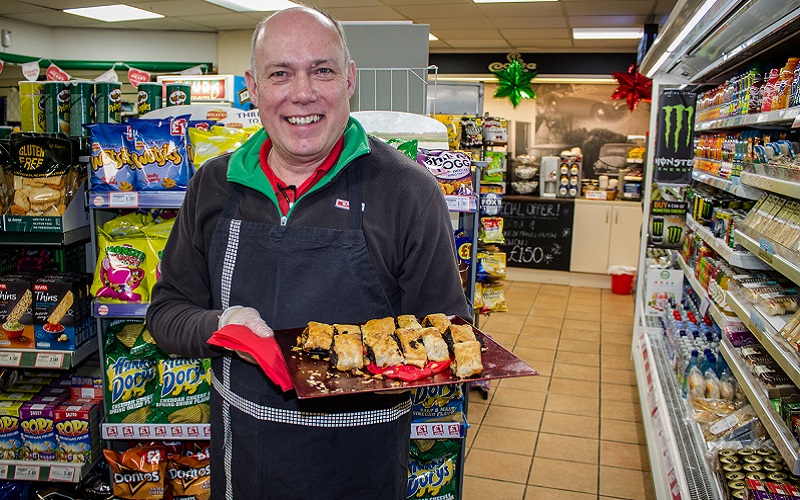
“Treat your customers well,” she says. “Treat everyone like they are repeats. Having a customer base that wants to come back into your shop continually is crucial to the successful running of your business. You want people to think like they don’t want to go anywhere else”
With customers interested in coming into the shop repetitively, a retailer can start to work out what appeals to them and how they would like to see the store change, says McCormick.
“Know what your community wants. There could be fads or new products coming to the market – often driven by local suppliers that someone elsewhere has heard of – that can be a great way to generate business. From there, you get to know your local suppliers, which can really put you at a distinct advantage – particularly in today’s market where people find local produce so much more appealing.”
McCormick cites a number of examples in which the company has moved ahead early, moving with trends. For instance, she started selling gluten-free products a full four years ago, well before the market became the revenue driver it has become for retailers everywhere.
“You can’t be afraid to try new and different things. Embrace new things and try to think outside the box. You have to learn from working on your shop floor: the younger generation was becoming more health conscious and this is just one of a number of ways we decided to try a new product range that pulled off, and the gluten -free market is still going strong.”
Challenges
Northern Ireland’s local forecourt owners have faced a variety of challenges over the years, not least from the large UK supermarkets who, in the 1990s, moved into the country and immediately put pressure on local retailers by opening petrol stations and driving down prices. Those larger firms based prices on local market conditions, and forced a lot of local retailers out of the market. However, economic conditions changed, as did the populace’s attitude to finances: during the property boom, people were saving to invest, and when the market crashed people were saving to pay off debts or just generally being more thrifty. There was a benefit to local retailers, according to McCormick.
“People realised that filling big supermarket trolleys with goods – some of which they might not need – isn’t the best way to save cash,” she says. “They used to be convinced that bulk buying was the best way to do things but now people buy small and frequently. So they are buying what they need that day, locally, using everything they’ve bought, and coming in again tomorrow rather than buying in bulk and throwing a lot out.”
Shoppers have become a lot more waste-aware, according to McCormick, and that’s driven even greater interest in fresh foods.
“The younger generation is keen to eat good, local, fresh food. We have all that in the north of Ireland. What’s been discovered over the past few years is that there’s almost no need to buy from across the water – it’s all here. And the younger generations are very fell informed on that.”

That’s not to say operating in the retail and forecourt market has become simple for small companies and sole traders, indeed the challenges continue to change. Cars are now capable of doing more mileage per gallon than ever below, and electric vehicles are increasingly being seen on Northern Ireland’s roads. Customers are relying more on mobile phone apps and digital technology, in which they look for the greatest deals and hunt for the best bargains. A poor driving season can lead to depressed sales, meaning the forecourt operator needs to readjust plans for the rest of the year. Within these problems, McCormick has always tried to keep ahead of the game.
“I’ve moved with the times as best I can, and always have. Looking to what was going to happen next has always been crucial, for me. You learn a lot from your shop floor but I get inspiration in asking questions of myself also. Over the years, I’ve asked myself ‘if someone was going to take over this filling station tomorrow morning what would they most likely do differently?’ When I’ve thought of the answer, I’ve gone ahead and done it.
The benefits of the local retailer cannot be understated, and with McCormick having been in situ since her father built the petrol station in the mid-1950s those benefits become multiplied. Far from simply serving the local community, she’s been a part of it for a long time.
“I’m still serving people who were customers when I was at school. People still come in and talk about my father – who has been dead for more than twenty years. Some of his first customers are still coming into the shop and it’s great to see those characters so regularly.”
But there’s a lot more to the local shop than just seeing old faces, says McCormick, and says there’s a range of functions such shops provide that shouldn’t be underestimated.
“Some people just wouldn’t go out of the house if it wasn’t for getting down to the local shop.”
Featured image credit – David J Campbell – photographerdave.co.uk


